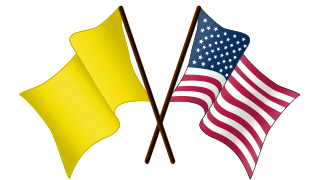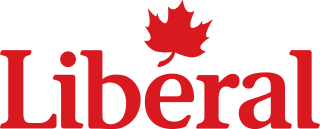| | ||||||||||||||||||||||||||||||||||||||||
| ||||||||||||||||||||||||||||||||||||||||
All 114 seats in the Folketing 58 seats needed for a majority | ||||||||||||||||||||||||||||||||||||||||
This lists parties that won seats. See the complete results below.
| ||||||||||||||||||||||||||||||||||||||||
 |
|---|
Folketing elections were held in Denmark on 3 April 1901. [1]
| | ||||||||||||||||||||||||||||||||||||||||
| ||||||||||||||||||||||||||||||||||||||||
All 114 seats in the Folketing 58 seats needed for a majority | ||||||||||||||||||||||||||||||||||||||||
This lists parties that won seats. See the complete results below.
| ||||||||||||||||||||||||||||||||||||||||
 |
|---|
Folketing elections were held in Denmark on 3 April 1901. [1]
Eight of the 114 seats were uncontested, of which six were won by the Venstre Reform Party and two by the Social Democratic Party. [2]
 | |||||
|---|---|---|---|---|---|
| Party | Votes | % | Seats | +/– | |
| Venstre Reform Party | 96,481 | 42.87 | 76 | +13 | |
| Højre | 54,103 | 24.04 | 8 | –8 | |
| Social Democratic Party | 38,398 | 17.06 | 14 | +2 | |
| Moderate Venstre | 26,993 | 11.99 | 16 | –7 | |
| Others | 9,091 | 4.04 | 0 | 0 | |
| Total | 225,066 | 100.00 | 114 | 0 | |
| Valid votes | 225,066 | 98.46 | |||
| Invalid/blank votes | 3,510 | 1.54 | |||
| Total votes | 228,576 | 100.00 | |||
| Registered voters/turnout | 404,271 | 56.54 | |||
| Source: Mackie & Rose [2] | |||||

The Free Democratic Party is a liberal political party in Germany.

The Libertarian Party (LP) is a libertarian political party in the United States that promotes civil liberties, non-interventionism, laissez-faire capitalism, and limiting the size and scope of government. The world's first explicitly libertarian party, it was conceived in August 1971 at meetings in the home of David F. Nolan in Westminster, Colorado, and was officially formed on December 11, 1971, in Colorado Springs. The organizers of the party drew inspiration from the works and ideas of the prominent Austrian school economist Murray Rothbard. The founding of the party was prompted in part due to concerns about the Nixon administration's wage and price controls, the Vietnam War, conscription, and the introduction of fiat money.

The Republican Party, also known as the Grand Old Party (GOP), is one of the two major contemporary political parties in the United States. It emerged as the main political rival of the then-dominant Democratic Party in the 1850s, and the two parties have dominated American politics since then.

The Indian National Congress (INC), colloquially the Congress Party or simply the Congress, is a political party in India with deep roots in most regions of India. Founded on 28 December 1885, it was the first modern nationalist movement to emerge in the British Empire in Asia and Africa. From the late 19th century, and especially after 1920, under the leadership of Mahatma Gandhi, the Congress became the principal leader of the Indian independence movement. The Congress led India to independence from the United Kingdom, and significantly influenced other anti-colonial nationalist movements in the British Empire.

The Liberal Party of Canada is a federal political party in Canada. The party espouses the principles of liberalism, and generally sits at the centre to centre-left of the Canadian political spectrum, with their main rival, the Conservative Party, positioned to their right and the New Democratic Party positioned to their left. The party is described as "big tent", practising "brokerage politics", attracting support from a broad spectrum of voters. The Liberal Party is the longest-serving and oldest active federal political party in the country, and has dominated federal politics of Canada for much of its history, holding power for almost 70 years of the 20th century. As a result, it has sometimes been referred to as Canada's "natural governing party".

The Communist Party of India (Marxist) (abbreviated as CPI(M)) is a communist political party in India. It is the largest communist party in India in terms of membership and electoral seats, and one of the six national parties of India. The party was founded through a splitting from the Communist Party of India in 1964 and it quickly became the dominant faction.

Starting with the 2000 United States presidential election, the terms "red state" and "blue state" have referred to US states whose voters vote predominantly for one party—the Republican Party in red states and the Democratic Party in blue states—in presidential and other statewide elections. By contrast, states where the vote fluctuates between the Democratic and Republican candidates are known as "swing states" or "purple states". Examining patterns within states reveals that the reversal of the two parties' geographic bases has happened at the state level, but it is more complicated locally, with urban-rural divides associated with many of the largest changes.

Presidential elections were held in the United States on November 2, 2004. Incumbent Republican President George W. Bush and his running mate, incumbent Vice President Dick Cheney, were re-elected to a second term. They narrowly defeated the Democratic ticket of John Kerry, a senator from Massachusetts, and his running mate John Edwards, a senator from North Carolina.

The 1984 United States House of Representatives elections was an election for the United States House of Representatives on November 6, 1984, to elect members to serve in the 99th United States Congress. They coincided with the re-election of President Ronald Reagan in a landslide. This victory also yielded gains for Reagan's Republican Party in the House, where they picked up a net of sixteen seats from the Democratic Party. Despite Reagan's extremely large electoral victory, the Democrats nonetheless retained a commanding majority in the House and actually gained seats in the Senate. These elections were the last until 2020 when a member of a political party other than the Democrats, Republicans, or an independent had one or more seats in the chamber.

The 1924 United States House of Representatives elections were elections for the United States House of Representatives to elect members to serve in the 69th United States Congress. They were held for the most part on November 4, 1924, while Maine held theirs on September 8. They coincided with the election to a full term of President Calvin Coolidge, who had replaced Warren Harding following his death.

1914 United States House of Representatives elections were elections for the United States House of Representatives to elect members to serve in the 64th United States Congress. They were held for the most part on November 3, 1914, while Maine held theirs on September 14. They were held in the middle of President Woodrow Wilson's first term.

The 1896 United States House of Representatives elections were held for the most part on November 3, 1896, with Oregon, Maine, and Vermont holding theirs early in either June or September. They coincided with the election of President William McKinley. Elections were held for 357 seats of the United States House of Representatives, representing 45 states, to serve in the 55th United States Congress. The size of the House increased by one seat after Utah gained statehood on January 4, 1896. Special elections were also held throughout the year.

The 2005 United Kingdom general election was held on Thursday 5 May 2005, to elect 646 members to the House of Commons. The governing Labour Party led by Prime Minister Tony Blair won its third consecutive victory, with Blair becoming the second Labour leader after Harold Wilson to form three majority governments. However, its majority fell to 66 seats; the majority it won four years earlier had been of 167 seats. The UK media interpreted the results as an indicator of a breakdown in trust in the government, and especially in Blair.
An independent politician or non-affiliated politician is a politician not affiliated with any political party or bureaucratic association. There are numerous reasons why someone may stand for office as an independent.

The Liberal Democrats are a liberal political party in the United Kingdom, founded in 1988. They are based at Liberal Democrat Headquarters, in Westminster, and the current leader of the party is Ed Davey. They are the third-largest party in the United Kingdom, with 72 members of Parliament (MPs) in the House of Commons. They have 77 members of the House of Lords, four members of the Scottish Parliament, one member in the Welsh Senedd, and more than 3,000 local council seats. The party holds a twice-per-year Liberal Democrat Conference, at which party policy is formulated. In contrast to its main opponents' rules, the Liberal Democrats grant all members attending its Conference the right to vote on party policy, under a one member, one vote system. The party also allows its members to vote online for its policies and in the election of a new leader.
The Labour Party is a political party in the United Kingdom that sits on the centre-left of the political spectrum. The party has been described as an alliance of social democrats, democratic socialists and trade unionists. It is one of two dominant political parties in the United Kingdom, along with the Conservative Party. The party has been led by Keir Starmer since April 2020, who became Prime Minister of the United Kingdom in July 2024 following the 2024 general election when Labour became the largest political party in the House of Commons and formed a government. To date, there have been seven Labour prime ministers - MacDonald, Attlee, Wilson, Callaghan, Blair, Brown and Starmer.

The 1836–37 United States Senate elections were held on various dates in various states. As these U.S. Senate elections were prior to the ratification of the Seventeenth Amendment in 1913, senators were chosen by state legislatures. Senators were elected over a wide range of time throughout 1836 and 1837, and a seat may have been filled months late or remained vacant due to legislative deadlock. In these elections, terms were up for the senators in Class 3.

The 2015 Canadian federal election was held on October 19, 2015, to elect the 338 members of the House of Commons of the 42nd Parliament of Canada.

The Aam Aadmi Party is a political party in India. It was founded on 26 November 2012 by Arvind Kejriwal and his then-companions, following the 2011 Indian anti-corruption movement against then government of Indian National Congress. The AAP is currently the governing party in the Indian state of Punjab and the union territory of Delhi. On 10 April 2023, the AAP was officially granted the status of national party by the ECI. The party's election symbol is a broom. The party is currently part of the coalition I.N.D.I.A. Recently, popular UPSC educator Awadh Ojha joined the AAP.

The 2015 United Kingdom general election was held on Thursday, 7 May 2015 to elect 650 members of Parliament (MPs) to the House of Commons. The Conservative Party, led by Prime Minister David Cameron, won an unexpected majority victory of ten seats; they had been leading a coalition government with the Liberal Democrats. It was the last general election to be held before the UK voted to leave the European Union (EU) in June 2016.